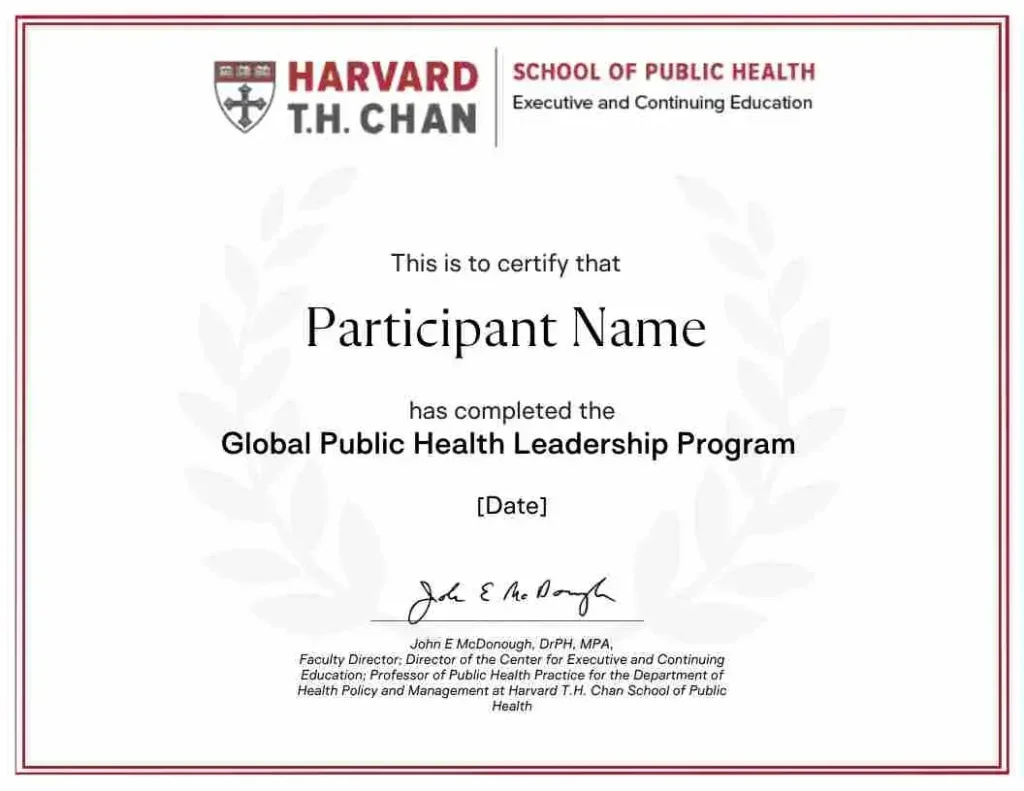Responsible AI for Health Care: Concepts and Applications
This program is not currently available for registration. Click subscribe to be notified when information becomes available

Summary
AI is reshaping industries, with Large Language Models and Generative AI poised to revolutionize health care. Responsible AI for Health Care: Concepts and Applications introduces these technologies’ core principles, emphasizing responsible AI use, ethical considerations, and safety measures under the tutelage of distinguished Harvard faculty. It transitions health care professionals from traditional to data-driven AI-augmented practices using a “zero-to-AI” strategy, providing foundational concepts tailored for health care applications.
Participants will engage in a dynamic learning experience through group discussions, active learning, case studies, and master classes that explore AI’s origins and implementation challenges. The course examines viable business models for AI in health care and forecasts future developments over the next five years. It also fosters a networking environment for collaboration among participants, serving as a lasting resource beyond the program.
Program Overview
AI is Transforming Industries—Understand its Role in Healthcare’s Future
Large Language Models (LLMs), machine learning, and other forms of artificial intelligence (AI) are reshaping how healthcare is delivered, managed, and regulated. But with this promise comes complexity and risk. Responsible AI for Health Care: Concepts and Applications is a four-day, intensive live online program that equips healthcare professionals with the knowledge and tools to critically assess, implement, and govern AI technologies in clinical, operational, and public health settings.
Led by renowned Harvard faculty and AI ethics experts, this program focuses on ethical principles, regulatory frameworks, fairness, transparency, and implementation science. Participants will examine real-world case studies—both successes and failures—to explore how to apply responsible AI in high-stakes environments while avoiding unintended harms.
Through interactive lectures, group discussion, and applied learning, participants will engage with timely questions at the intersection of innovation, safety, and health equity. The program also fosters a strong peer network, designed to support continued learning and collaboration well beyond the course.
Harvard Chan School invites you to learn more about our AI in Health Care Certificate of Specialization program. While each program can be taken independently, completing three healthcare AI courses in our portfolio earns the Certificate of Specialization.
- New to AI? Start with Responsible AI for Health Care: Concepts and Applications for a strong foundation.
- Ready for advanced material? Continue with Innovation with AI in Health Care or Implementing Health Care AI in Clinical Practice.
For those who have taken earlier versions of Applied AI in Health Care, this updated program reflects the latest developments in AI for healthcare, with fresh group projects and collaborative learning opportunities. For any questions about the programs or Certificate of Specialization, please email enrollment@hsph.harvard.edu.
See Our Faculty in Action
In the video below, you can hear directly from course faculty on how AI is reshaping healthcare operations and patient care. This discussion offers a preview of the key concepts and case studies you’ll explore more deeply in this program.
Certificate of Specialization
Advance your Career with a Certificate of Specialization
This program contributes to the AI in Health Care Certificate of Specialization. Click here for more information.

Objectives & Highlights
- Define foundational AI concepts and differentiate types of AI tools relevant to clinical, operational, and population health use cases
- Identify sources of algorithmic bias stemming from data, design, or deployment, and evaluate their impact on health equity
- Apply leading ethical frameworks to assess fairness, transparency, accountability, and safety in healthcare AI
- Compare and contrast U.S. and global regulatory approaches to healthcare AI, and assess implications for compliance and innovation
- Evaluate the trade-offs between explainability and model complexity, and explain the role of transparency in building trust in clinical AI
- Assess post-deployment risks and accountability mechanisms, including model drift, adverse event reporting, and human oversight
- Analyze real-world AI successes and failures to identify lessons learned and implementation challenges
- Develop strategies for responsible AI implementation aligned with ethical standards, clinical workflows, and organizational readiness
- Led by Harvard faculty with deep expertise in AI, ethics, regulation, and healthcare implementation
- Explore real-world case studies of both successful and flawed AI implementations
- Engage with ethical and regulatory frameworks shaping AI in healthcare globally
- Gain tools to evaluate and monitor AI systems, including bias detection, transparency practices, and risk assessments
- Participate in interactive learning through group discussion, applied exercises, and optional Q&A
- Develop strategies for responsible AI implementation aligned with clinical, regulatory, and organizational realities
- Join a global network of healthcare professionals committed to safe, equitable, and effective AI
Tackling AI Challenges in Healthcare:
- Diagnosis
Responsible AI leverages large-scale multimodal health data to enhance diagnostic accuracy, reduce misdiagnosis, and ease clinician workload, all while prioritizing ethical data use and patient privacy. - Precision Medicine
By enabling data-driven, patient-specific treatment plans, responsible AI shifts care from generic protocols to personalized medicine. This approach improves outcomes, optimizes resource use, and ensures equity through bias-aware, ethical design. - Prediction Models
Ethical AI-powered prediction models support clinicians in forecasting disease progression and tailoring interventions. These models enhance decision-making, reduce risks, and promote transparent, accountable care strategies. - Course Focus
To unlock AI’s full potential and prevent harm, practitioners must understand the responsibilities that extend beyond algorithm development. This course emphasizes pre- and post-deployment considerations, including algorithmic bias, equity, and public health impacts. Students will gain the tools to implement responsible AI solutions that improve patient outcomes and drive systemic efficiency.
Throughout this program, you’ll learn directly from distinguished Harvard faculty and leading industry experts. Interactive live sessions and small group discussions provide plenty of opportunities to ask questions and exchange experiences with faculty. Core instructors include:
- Trishan Panch, MD, MPH: Instructor, Harvard T.H. Chan School of Public Health
- Heather Mattie, PhD, SM, MS: Lecturer, Co-Director, Health Data Science Master’s Program, Director of EDIB Programs, Harvard T.H. Chan School of Public Health
- John Brownstein: Chief Innovation Officer, Boston Children’s Hospital. Professor of Pediatrics, Harvard Medical School
- Ray Campbell: President, FAIR Health
- Lindsay Jubelt: Chief Clinical Officer, Optum
- Emily Lindemer, PhD: VP Data & Healthcare Innovation, Morgan Health – JP Morgan Chase
- Gianluca Mauro: CEO, AI Academy
- Santiago Romero-Brufau, MD, PhD: Director of AI and Systems Engineering, Mayo Clinic. Adjunct Assistant Professor, Harvard T.H. Chan School of Public Health